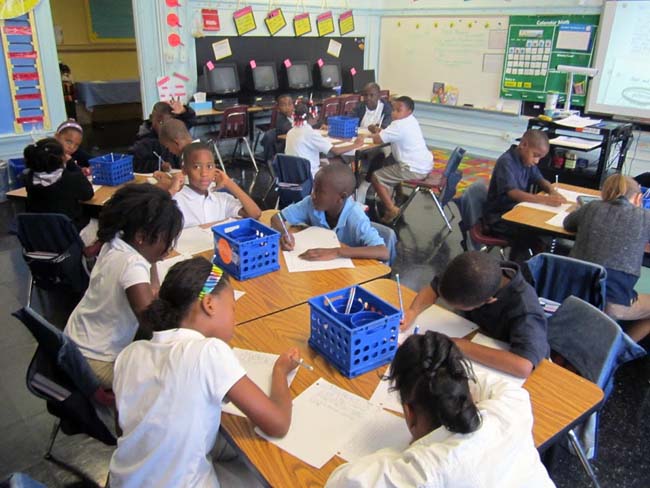I was inspired to share my story after reading the recent Flat Hat article, “McDonnell plans to bring TFA to Virginia.” Earlier this month, Gov. Bob McDonnell spoke at Goochland Middle School about the importance of expanding educational opportunities for students across the commonwealth. He proposed a number of changes designed to empower parents and educators, including more informative school report cards, fewer administrative hurdles and changes to the state’s teacher certification legislation that would pave the way for alternative certification programs like Teach For America to come to Virginia. I was encouraged to hear the governor address the importance of giving every child an excellent education because it’s one of the most pressing issues facing our generation and one that we all have the power to influence.
I’m currently in my second year teaching third grade in Memphis, Tenn. Every day I look at my students, and my heart hurts for them; it hurts for their struggles, and it hurts that they haven’t received the education that they deserve. Take Martellous, for example. When Martellous came to me at the beginning of third grade, he could not read on a kindergarten level. Martellous’ previous teachers told me that he was going to be a constant behavior problem, unable to do any work, and I wouldn’t be able to change that. After getting to know Martellous and visiting his home, I discovered that we adults weren’t setting him up with the tools he needed. He didn’t have access to books or writing implements, which made it nearly impossible for him to do his homework or practice his reading.
Martellous’ story is all too common among students growing up in low-income communities. When kids growing up in poverty enter kindergarten, they are already academically behind their wealthier peers. By the fourth grade, they are on average three grade levels behind and half of them will not graduate from high school.
As a student at the College of William and Mary, this injustice weighed on my conscience. While I was reaping the benefits of a first-class college education, kids just a few miles down the road were struggling in a low-performing academic setting. I wanted to find a way to help expand educational opportunity for our 16 million children growing up in poverty.
We are currently at the halfway point in our school year, and Martellous has made a year and a half of growth in reading. With hard work and dedication, the sky is the limit for his future dreams and ambitions. We recently visited the Dixon Gallery, and he studied porcelain figurines with scholarly intensity and asked deep questions about the creation of the pieces. The excitement in his eyes as he ran back and forth between the pieces and me, telling me everything he had learned and read about his favorite works, was more gratifying than any test score he could ever achieve.
Martellous is beginning to realize that there’s so much more out there and that through his own hard work, and with the help of educators that believe in him and challenge him, he’ll be able to obtain the education that he — and every child in Memphis, in Virginia, and in our nation — deserves.
For too long, one’s zip code and family income has defined educational destiny. But we know that with an all-hands-on-deck approach, educational inequity is a solvable problem.
Even though the Teach For America corps commitment lasts only two years, the impact of teaching kids like Martellous lasts a lifetime. As members of our school community, my fellow corps members and I work alongside other teachers, parents, administrators and community members in the pursuit of excellence for our students. I can see the difference I am making in the lives of my students and know the transformational impact they are having on me.
Knowing what’s possible with these kids and with this movement, I simply can’t walk away from this work.
Emily McMillen is a 2011 Teach For America corps member teaching in Memphis and a 2011 graduate of the College of William and Mary.

